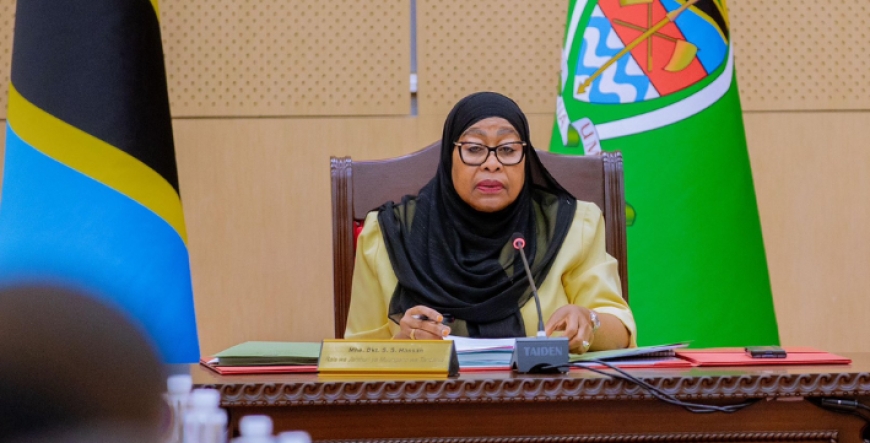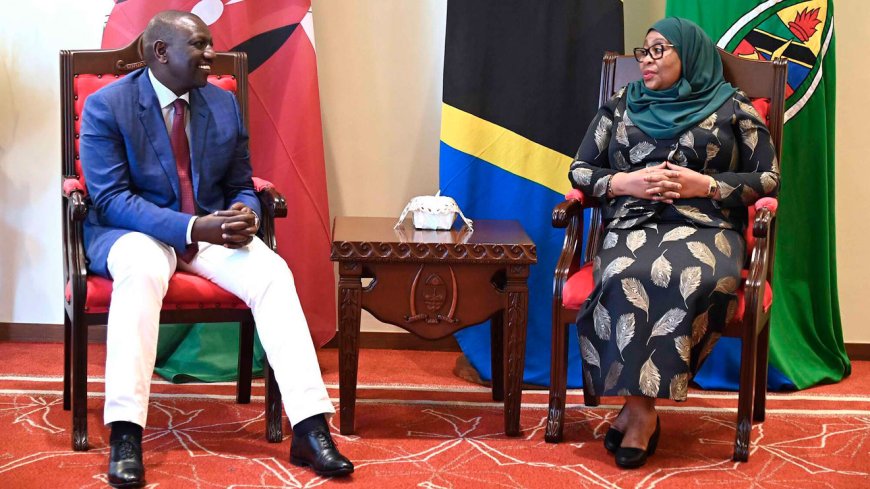Tanzania's Ban On Foreign Businesses Draws EAC Attention
The protocol ensures the unrestricted movement of goods, services, labour, and capital among member countries.

The East African Community (EAC) Secretariat has strongly cautioned Tanzania over its recent move to bar non-citizens, including Kenyans, from participating in 15 specific business sectors.
EAC Secretary General Veronica Nduva, in an official statement, criticised the directive, saying it goes against the principles outlined in the EAC Common Market Protocol.
The protocol ensures the unrestricted movement of goods, services, labour, and capital among member countries.

An aerial view of Dar es Salaam in Tanzania. /iSTOCK
"It is important to remind all Partner States that unilateral backtracking on these commitments is inconsistent with the obligations under the Protocol. This was reaffirmed by the Attorney General through the Sectoral Council on Legal and Judicial Matters in November 2024," the statement reads in part.
Tanzania’s recent order restricting foreign nationals—including citizens of Kenya, Uganda, Rwanda, and Burundi—from operating in 15 business sectors has drawn sharp criticism for undermining regional integration efforts.
The directive targets small-scale enterprises such as retail shops, food vending, and local transport services—sectors that had previously been opened up under the EAC Common Market Protocol.
The ban has hit foreign traders in Tanzania hard, especially Kenyans, with many already facing the cancellation of their business licences under the new rules.
Tanzania’s Minister for Industry and Trade, Selemani Saidi Jafo, stated that any foreigner caught operating in the prohibited sectors could face a fine of up to Tsh10 million (about Ksh502,927) or a prison term of up to six months. Tanzania has defended the move as necessary to safeguard local businesses.
However, the East African Community (EAC) has pushed back, arguing that the ban breaches Article 13 of the Protocol, which bars discrimination against citizens of other member states in the provision of services.
The EAC Secretariat has since initiated a compliance review to examine Tanzania’s actions, with the findings to be presented at the upcoming Sectoral Council meeting on Trade, Industry, Finance, and Investment.
In its official response, the EAC urged all member states to uphold their treaty commitments to preserve the integrity of the regional single market.
The statement follows a formal complaint from Kenya calling for Tanzania to be compelled to lift the restrictions.
Principal Secretary for the State Department for East African Community Affairs, Dr. Caroline Wanjiru Karugu, argued that the order could have potentially devastating effects, as the ban undermines the core principles of regional economic integration under the EAC Common Market Protocol.

Kenya's President William Ruto and his Tanzania counterpart, Samia Suluhu. /FILE






